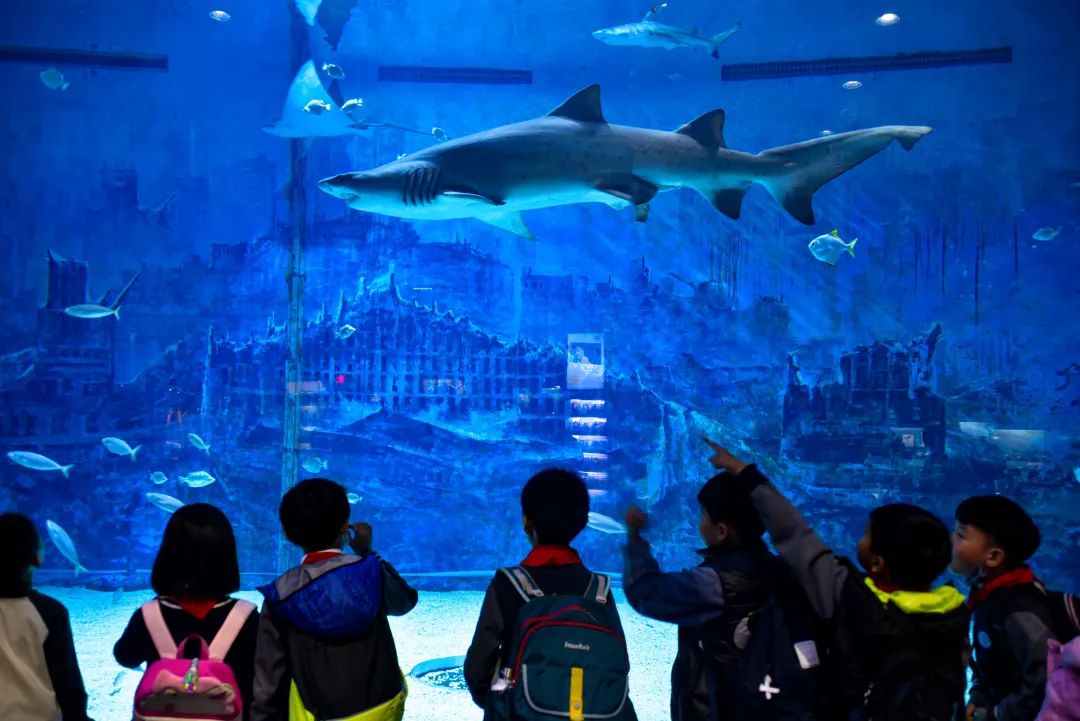
In Beijing in April, the sky is clear and cloudless. In the midst of laughter and laugh-
ter, the Grade 2 students started their long-awaited trip to the Beijing Aquarium.
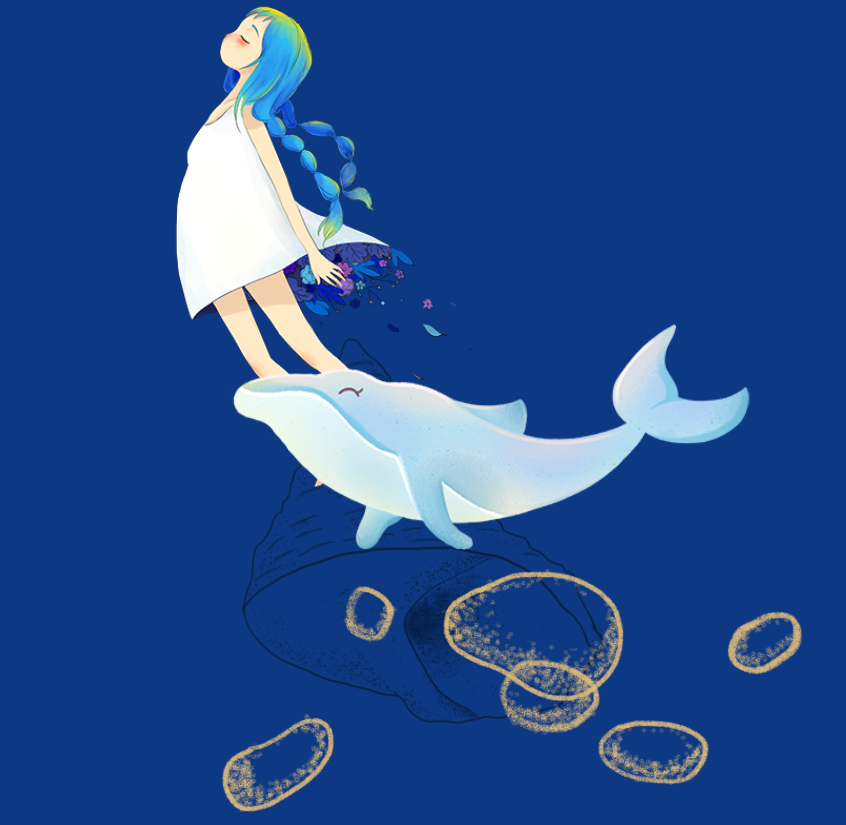
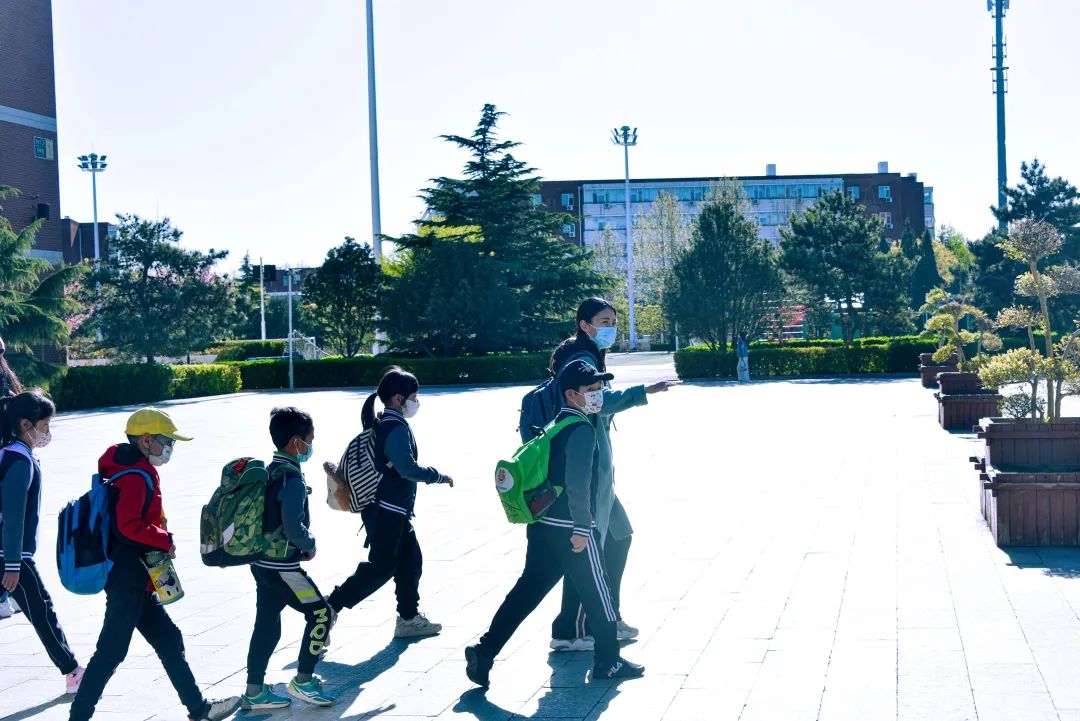
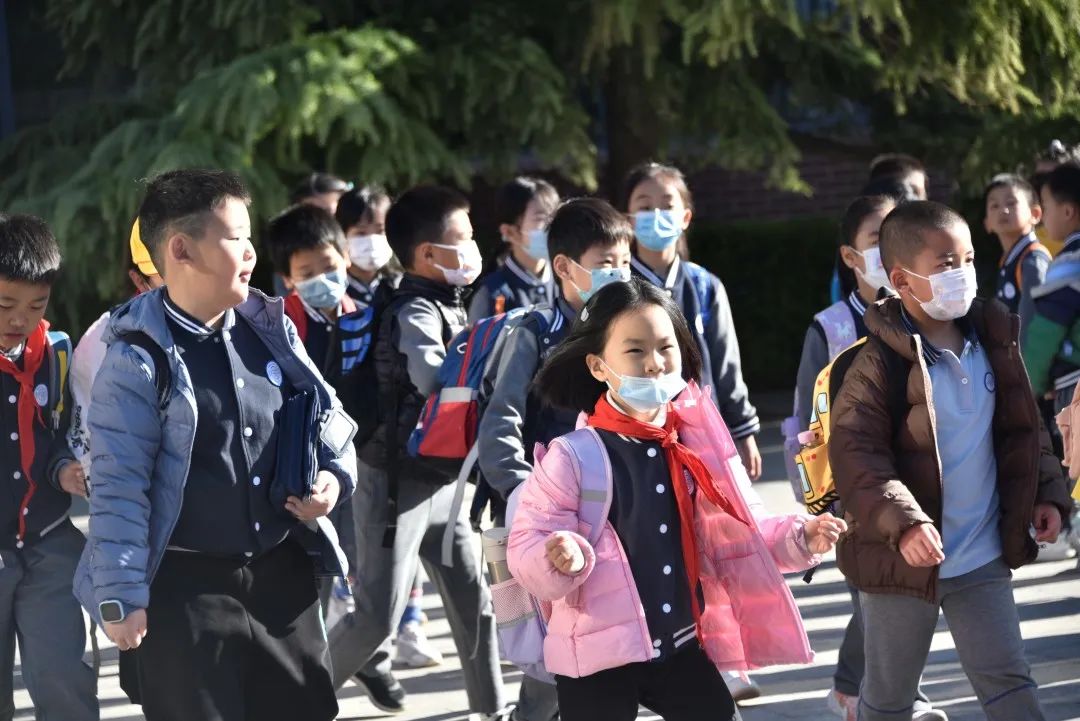
SMIC's education and teaching are never limited to the classroom. In addition to the daily
creative classes, every semester's off-campus study is also what the teachers and students
of the school are looking forward to, and this year is no exception.
Off-campus study is a traditional characteristic course of SMIC, which is not only a continua-
tion of conventional teaching, but also a new learning method that encourages students to
"go out of the classroom", from " sitting and talking " to "unity of knowledge and practice ".
This year, according to different grades, the off-campus study is distributed in Jingdong Plant
Factory, Beijing Aquarium, Science and Technology Museum, Summer Palace and Wildlife Park.
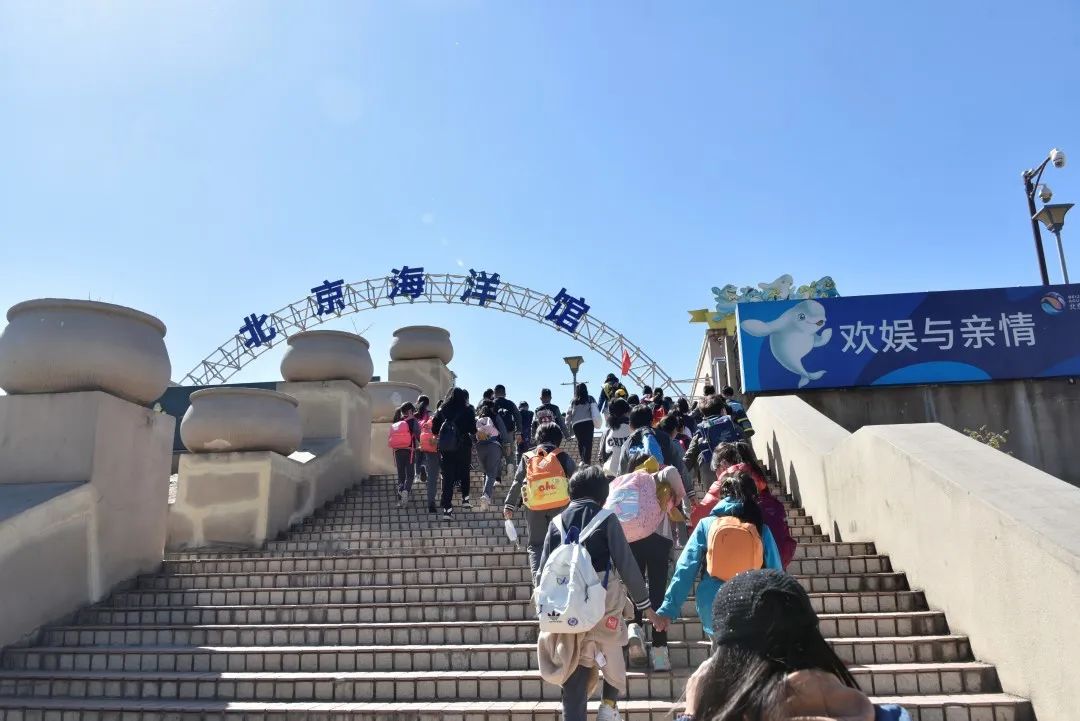
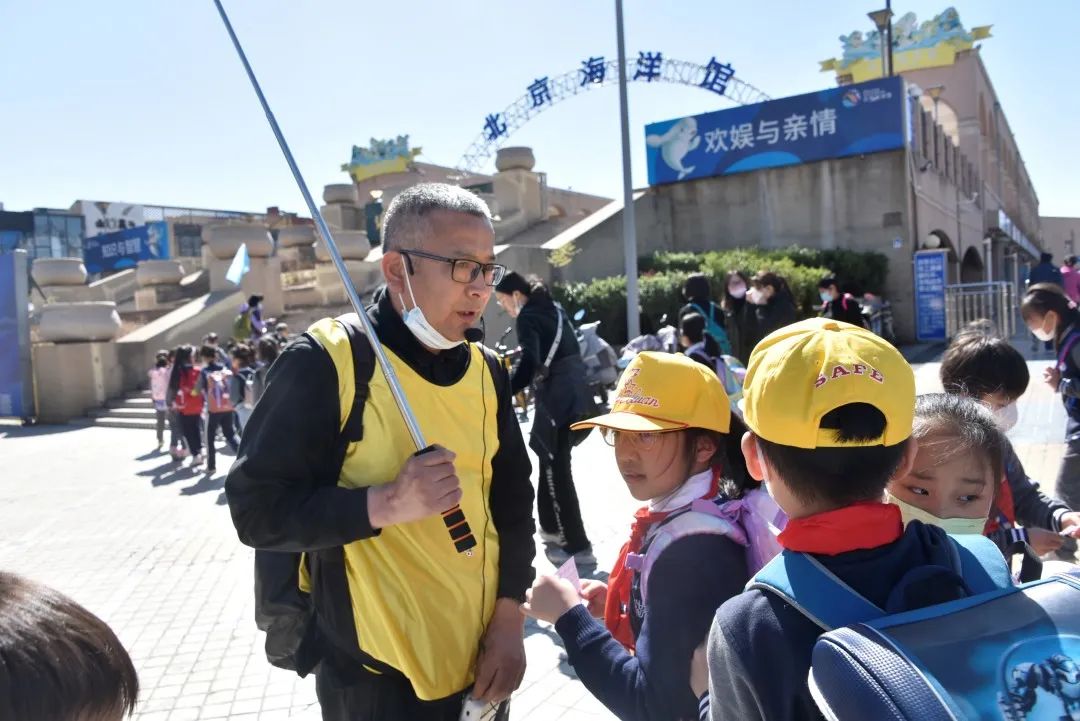
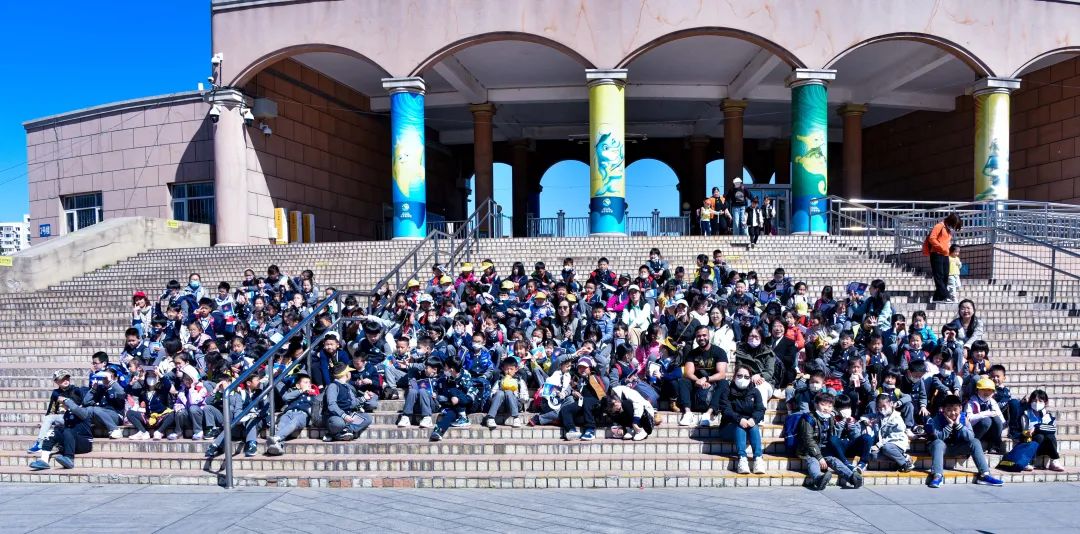
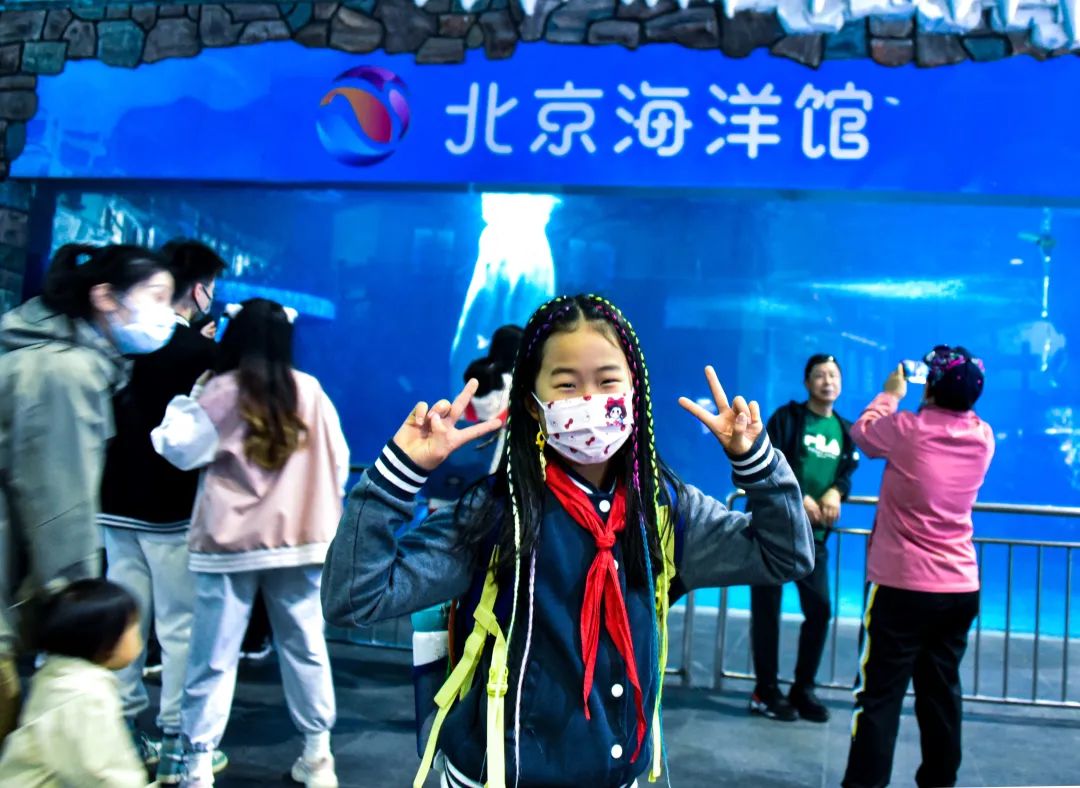
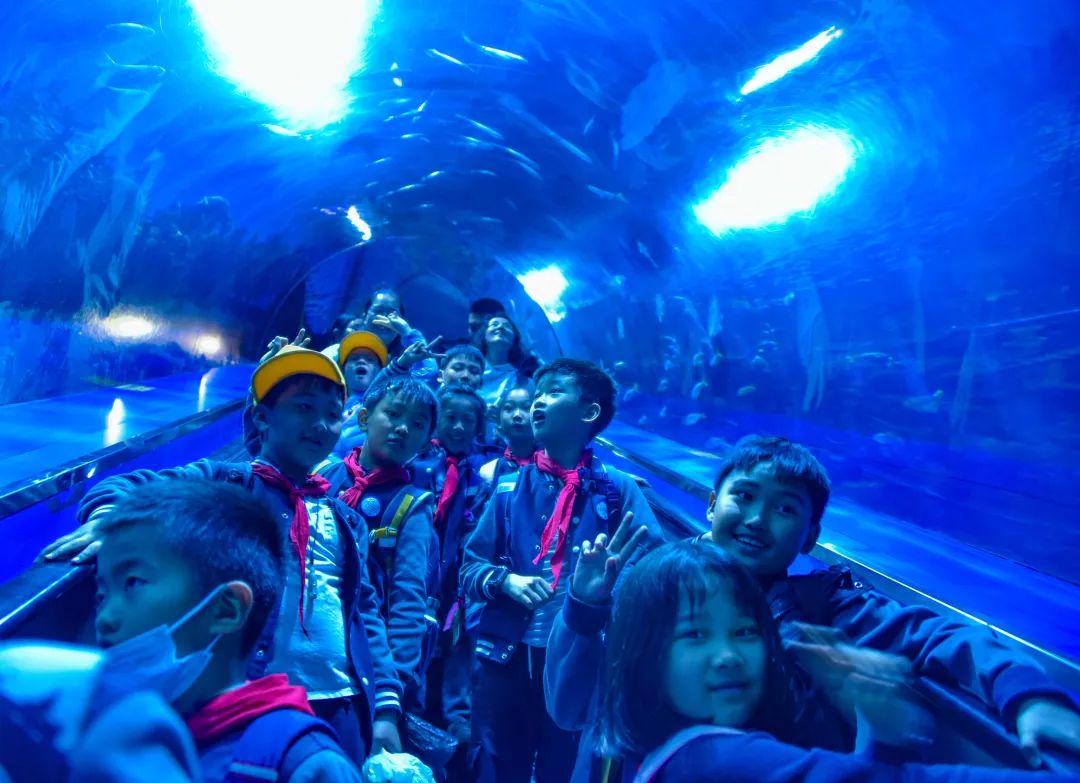
The destination of the Grade 2 teachers and students is the Beijing Aquarium, which is a large
modern marine biology popular science museum with seven thematic exhibition areas and a
variety of marine organisms.
Taking advantage of the spring scenery, we started our study journey and set out for the Bei-
jing Aquarium together!
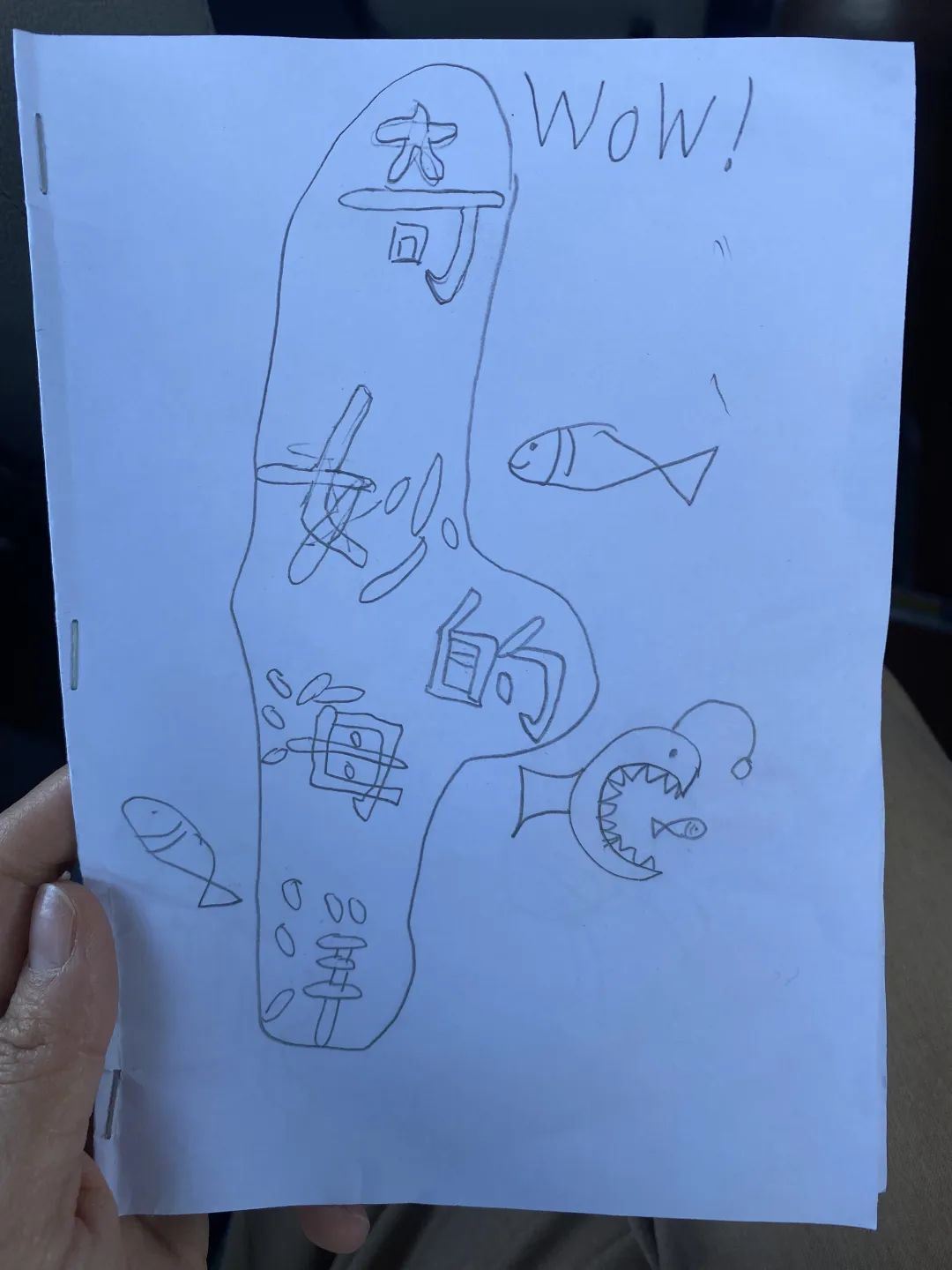
Before the start of the study activities, the students used their spare time to learn about their
favorite marine life. Some students also made a simple and interesting picture album of ocean
stories.
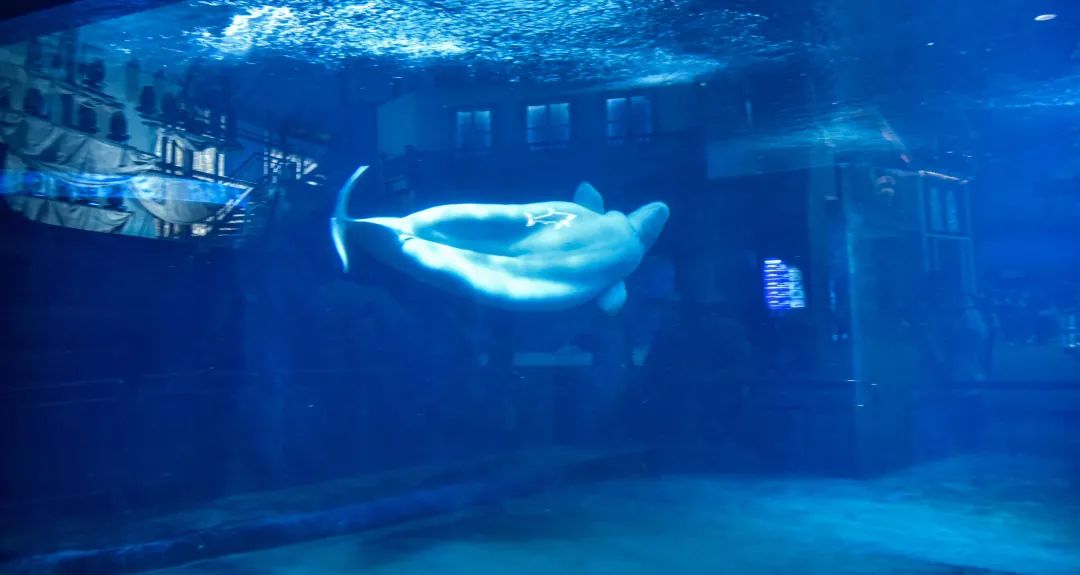
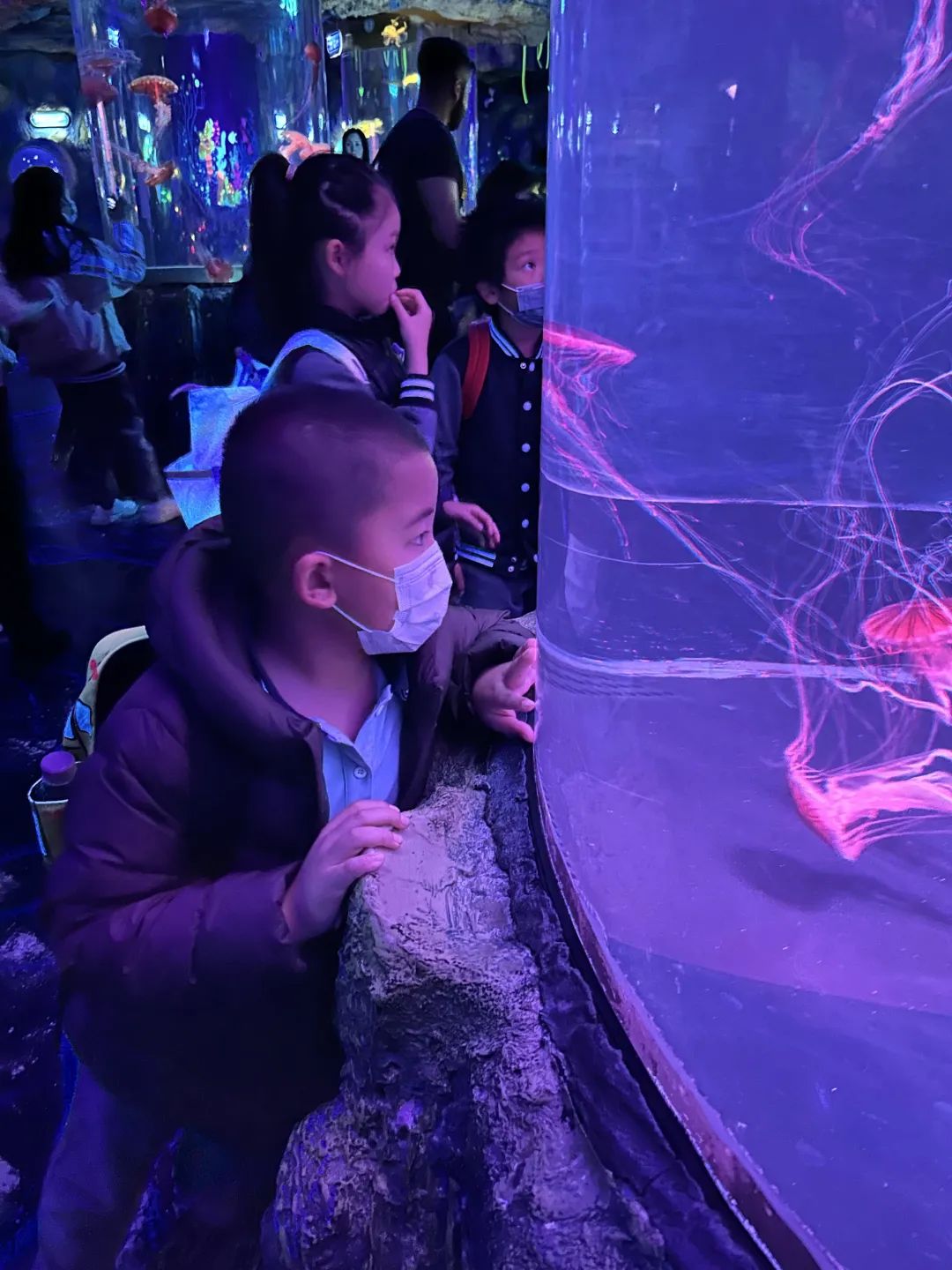
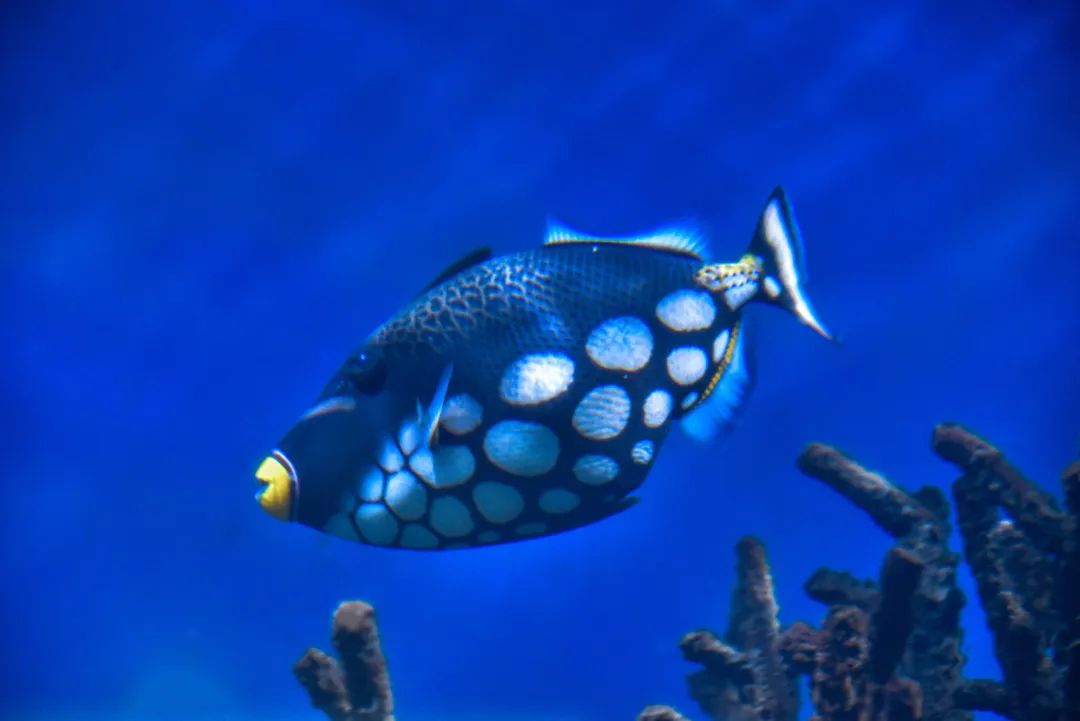
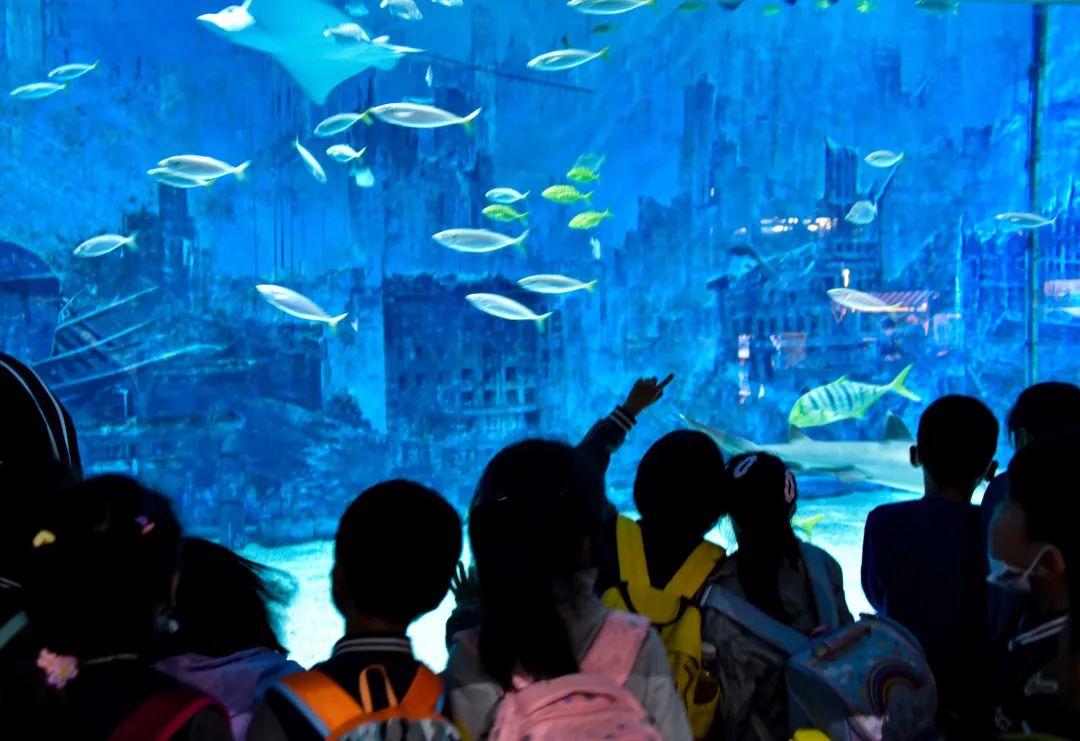
Through the introduction of the commentator in the aquarium, the children learned that the
ocean is the cradle of life, and the survival and development of all species on the earth are
closely related to the ocean. Therefore, protecting the ocean and marine animals is protect-
ing the earth itself.
In order to protect the diversity of marine life, zoologists use science and technology to study
and expand the population of rare and endangered marine species. China not only actively
protects the marine environment in law, but also implements major projects such as "Blue
Harbor" and "Ecological Islands and Reefs", which have significantly improved the marine
environment and effectively curbed man-made damage to the marine environment.
The true feeling at this moment is better than a thousand words of preaching. The seeds of
protecting marine animals had taken root and sprouted in children's little hearts!
Rich knowledge of marine organisms and lovely marine organisms made children linger, learn
and enjoy them. In the process of study, SMIC's good character was also shining everywhere.
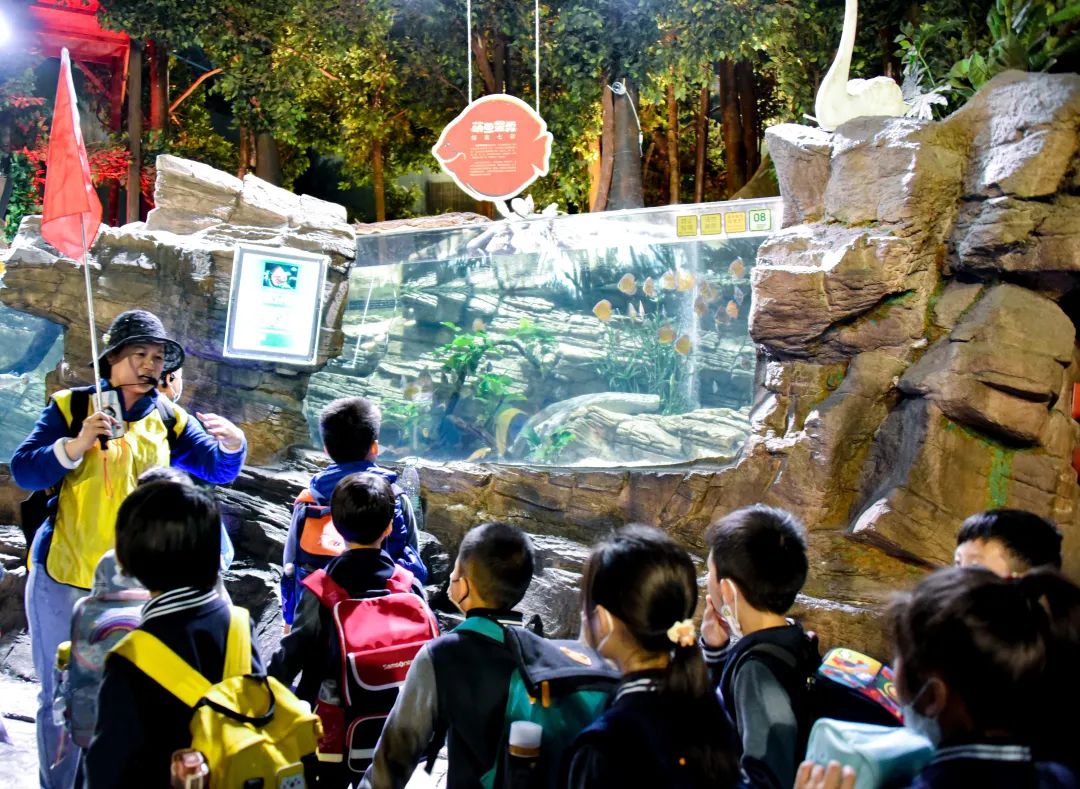
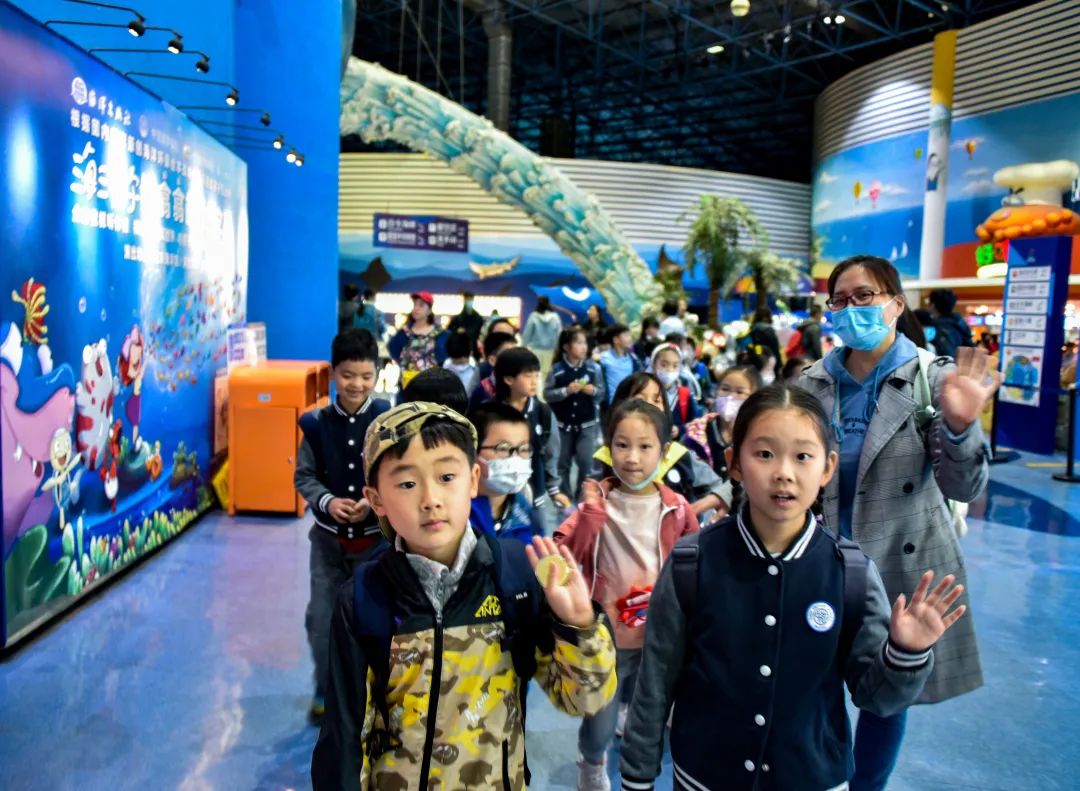
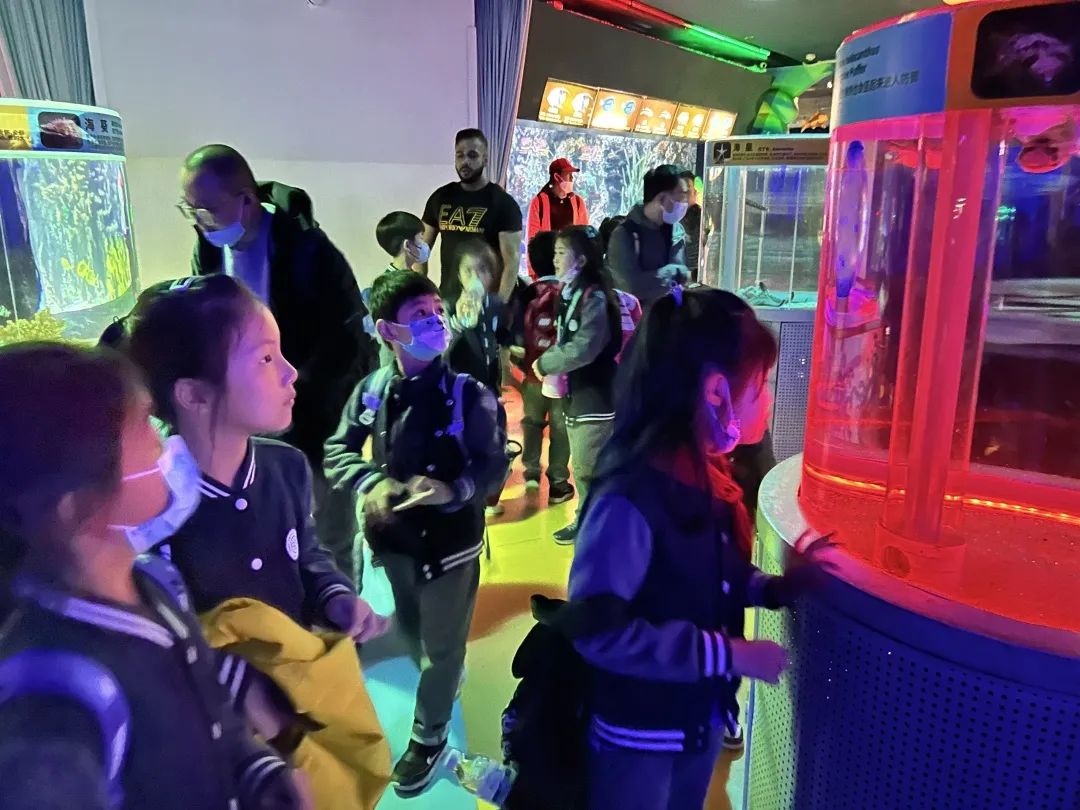
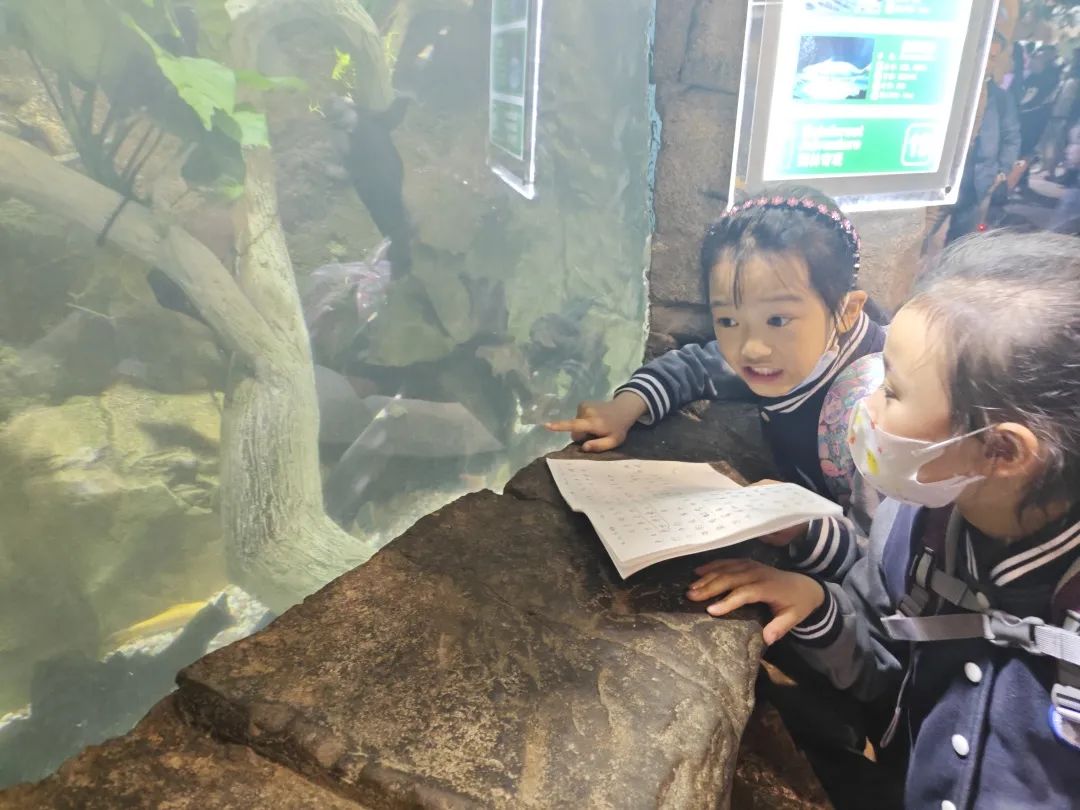
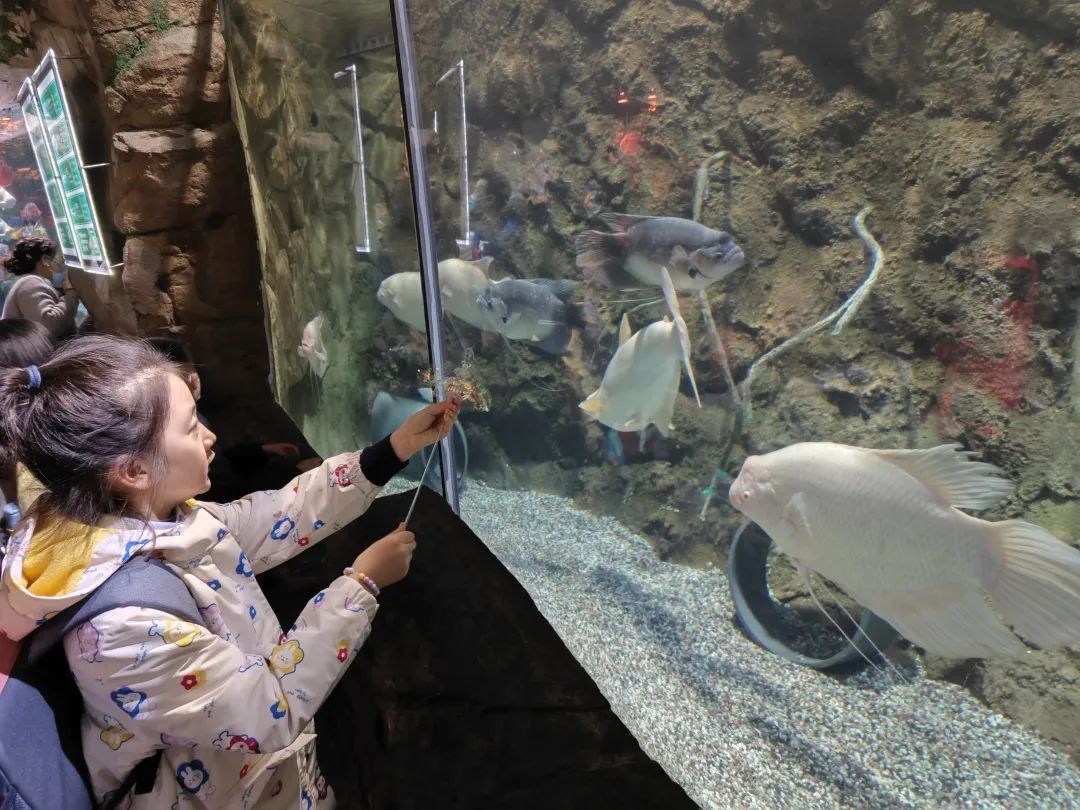
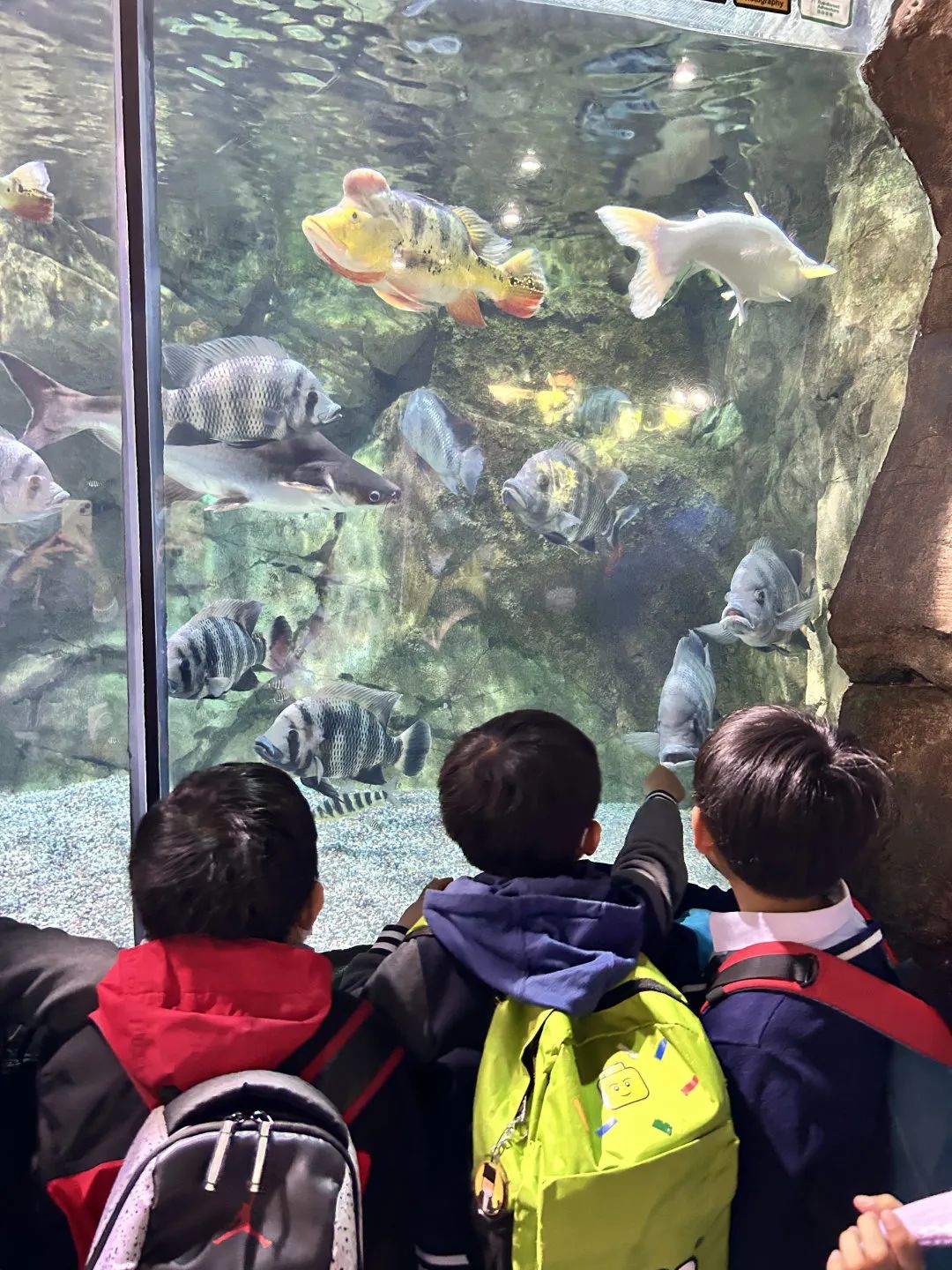
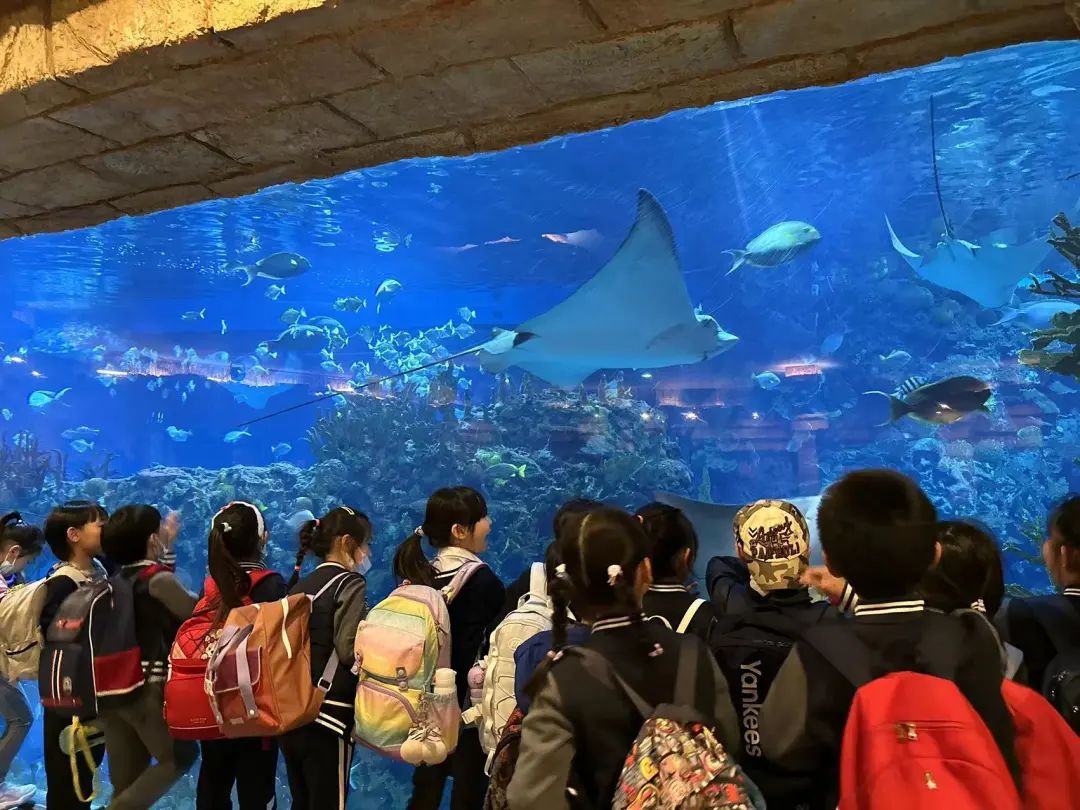
In the aquarium, children visited and studied in an orderly manner. When meeting younger
tourists and children, they took the initiative to give way and take away unnecessary items
and enthusiastically picked up the garbage scattered around after lunch; when classmates
needed help, there was always someone to lend a helping hand...
"Learning" on the road, we not only absorbed rich knowledge, but also demonstrated SMIC's
character in practice.
It is said that " Off-campus Study" is not only a "walking classroom", and but also a journey of
exploration, practice and experience. How to combine off-campus study with on-campus class-
room learning, so that the off-campus study can truly "blossom and bear fruit", the teachers of
the second-grade Chinese group had also conducted many teaching researches and discuss-
ions before this.
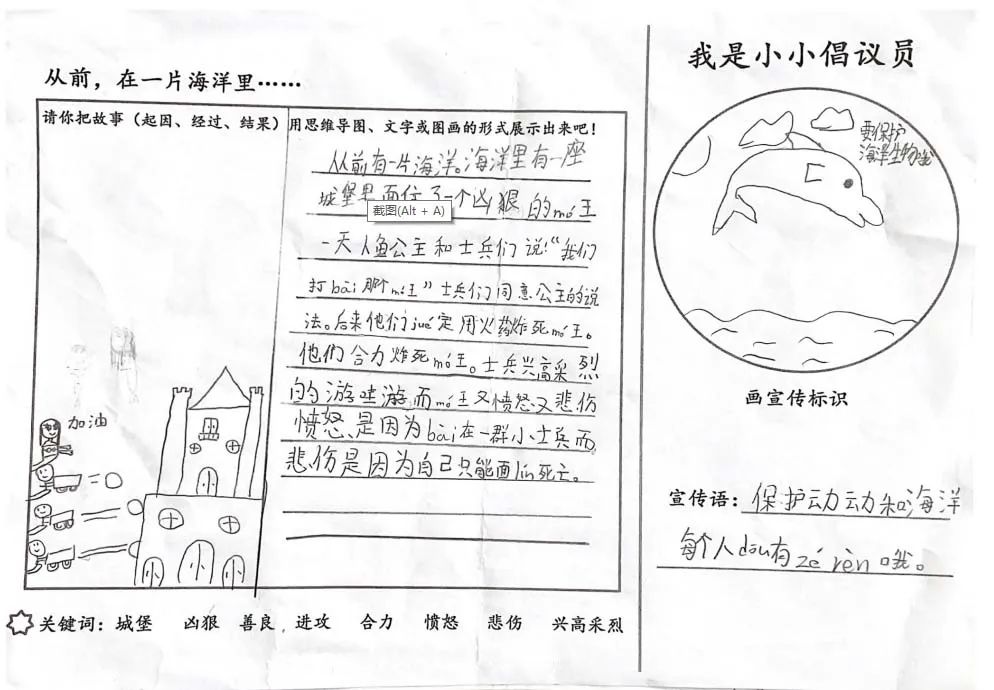
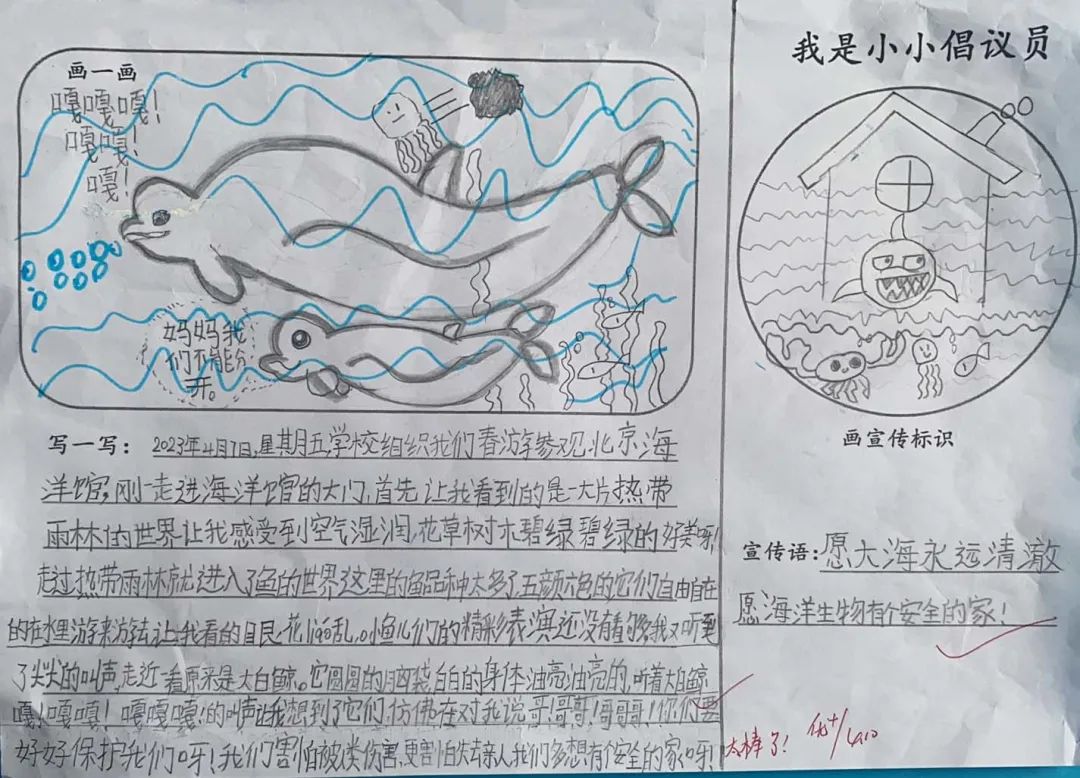
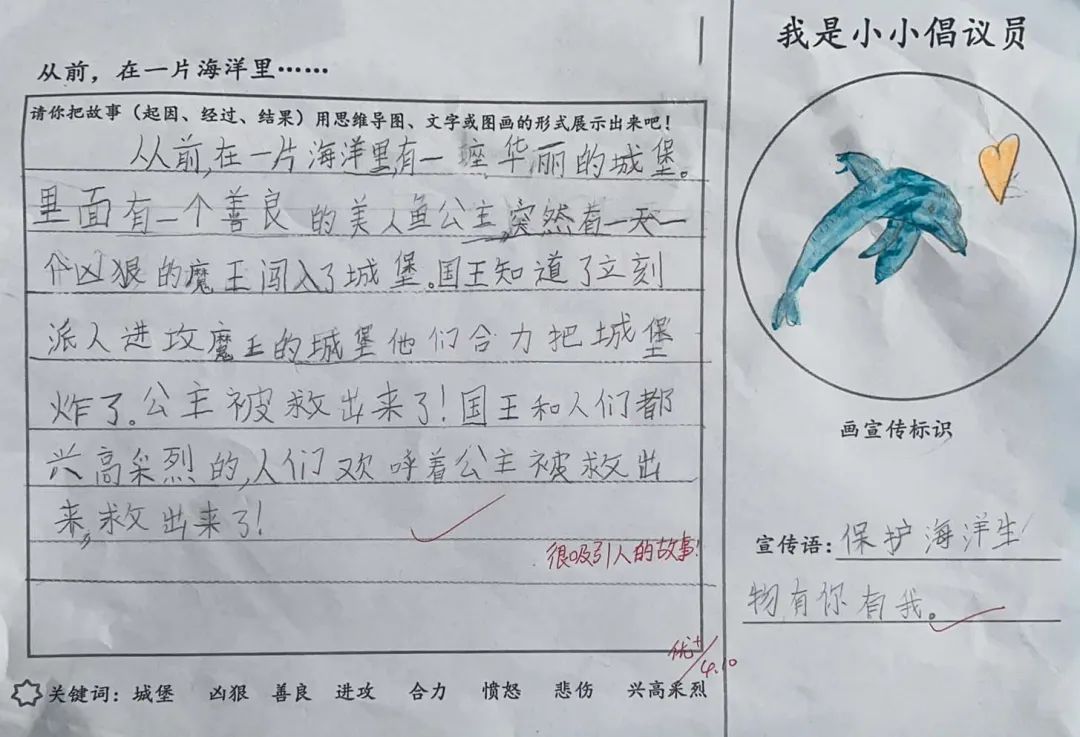
Combining with the teaching of the fourth unit of the second volume of the second grade of
Chinese, the teachers of the Chinese group designed the "Chinese Off-campus Study List",
which combined the theme of this unit "Developing Imagination and Weaving Fairy Tales"
with the study of Beijing Aquarium, to guide the students to develop their imagination, and
outline their own ocean stories by writing, drawing and telling. Children had turned into small
advocates to design propaganda slogans for ocean protection.
In mathematics, the children learned a lot about marine life in advance to discover the mathe-
matical problems in the aquarium. In the character class, the children also learned how to treat
the animals around them with respect and compassion.
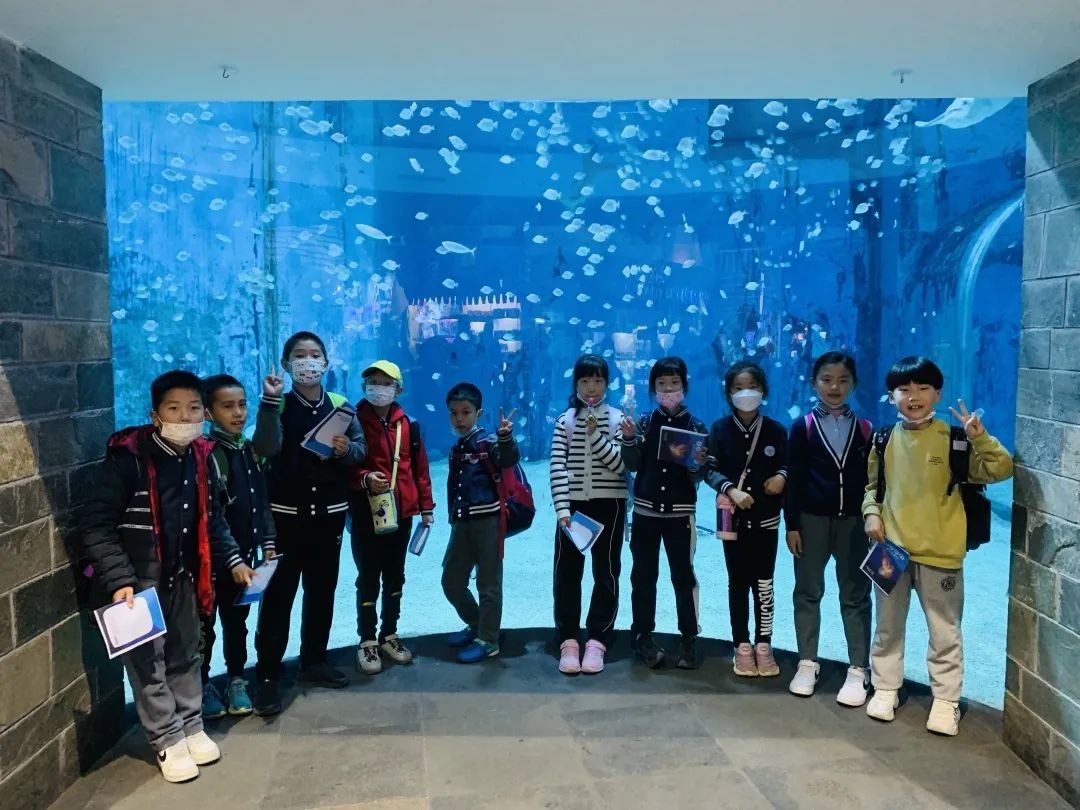
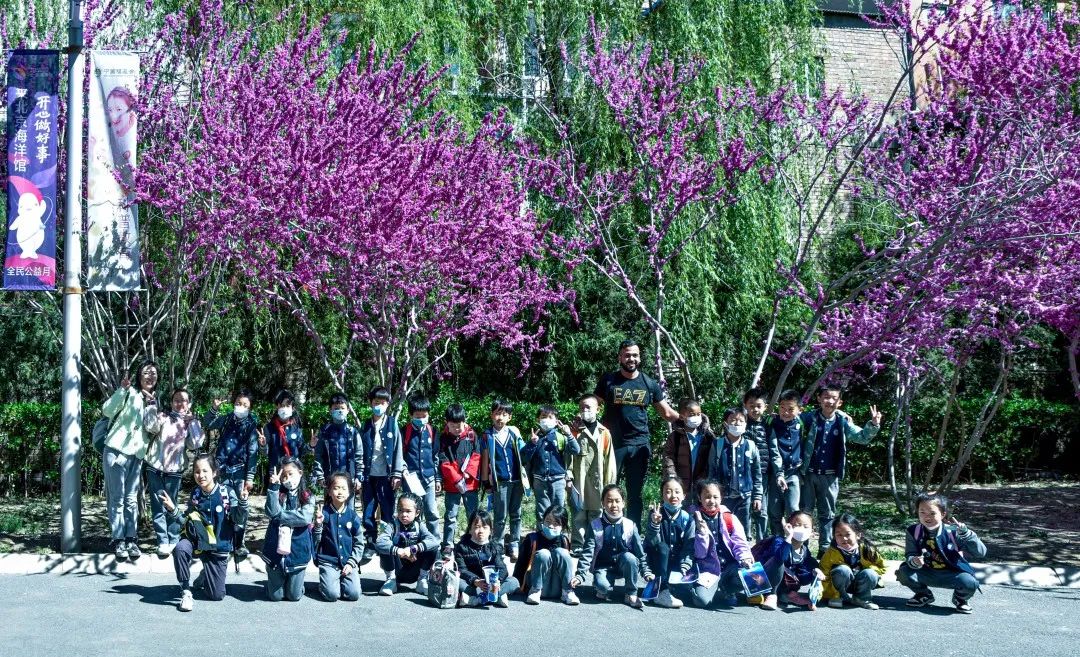
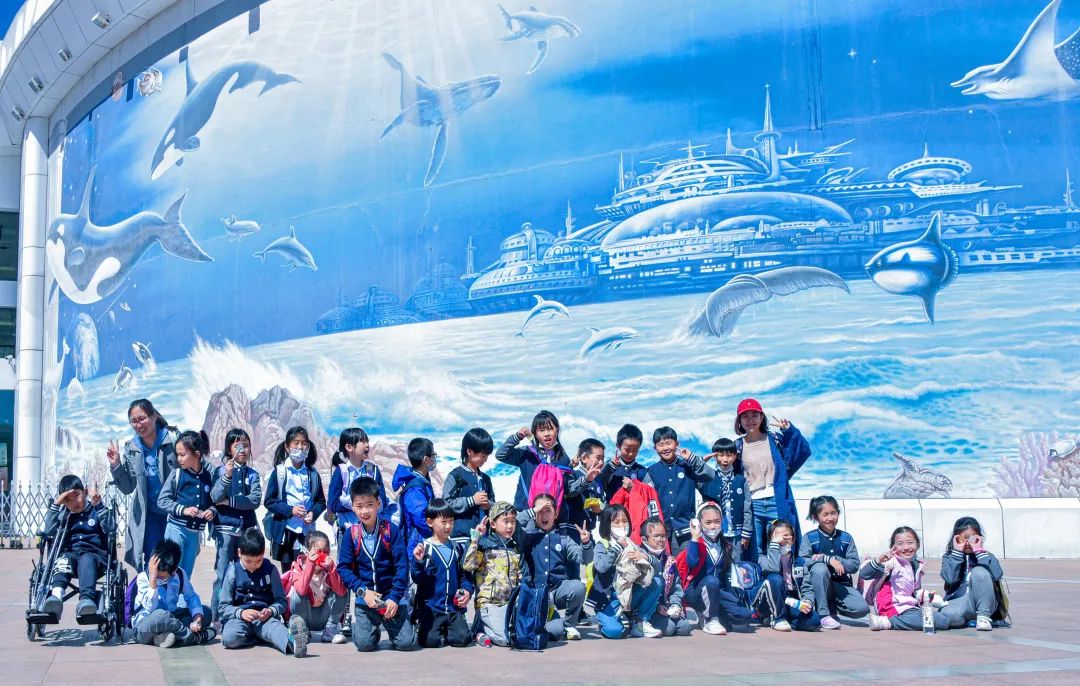
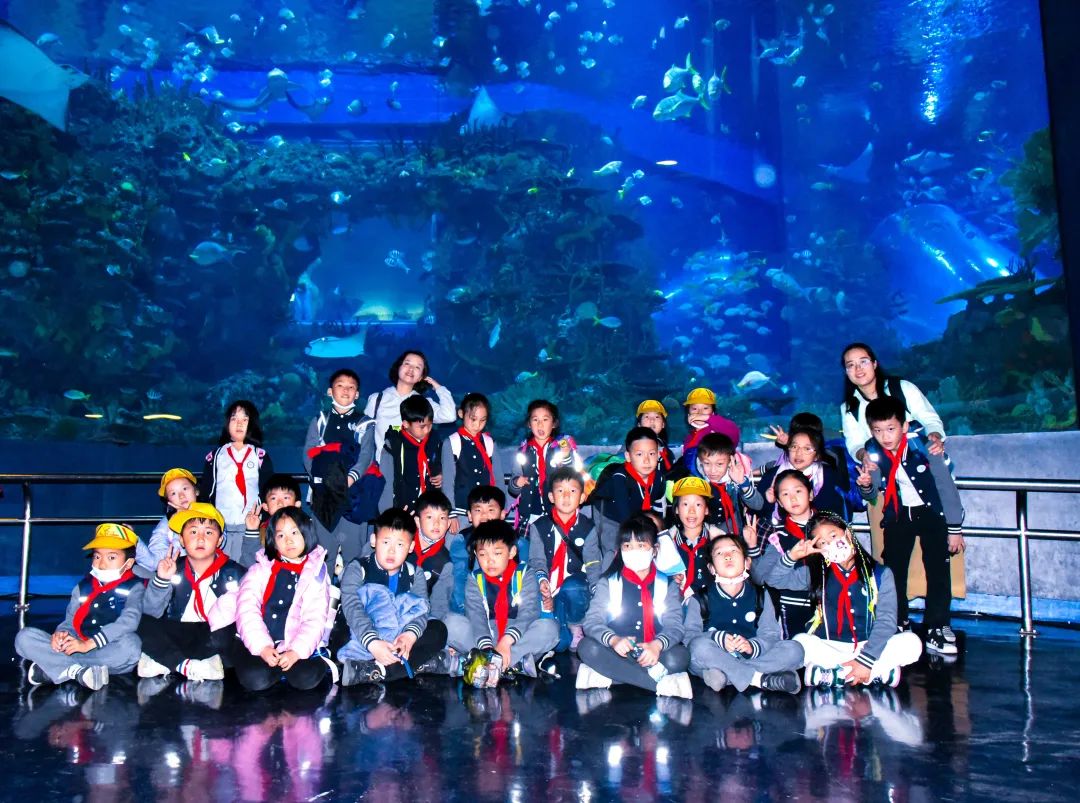
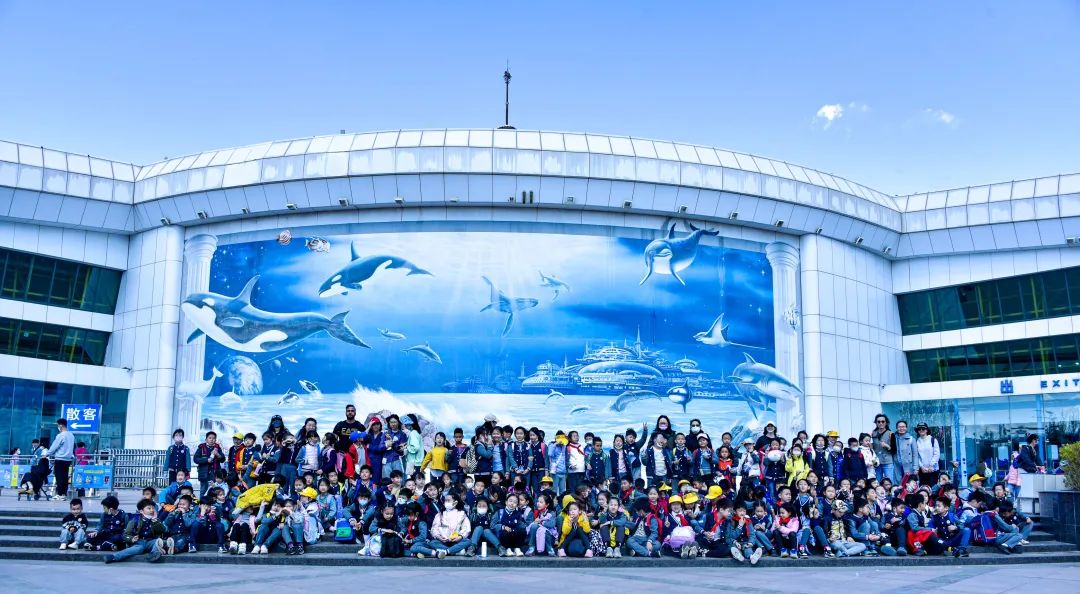
The integration of off-campus study and on-campus courses allows children to truly feel that
they had gained something from off-campus study.
Pay attention to marine animals and protect the natural environment. May these beautiful me-
mories in spring become an unforgettable lesson for children to grow up.

 返回列表
返回列表

